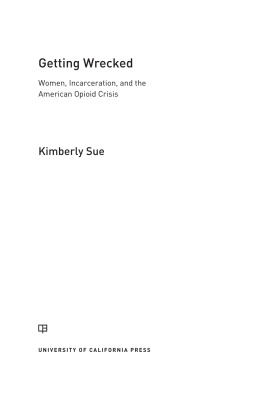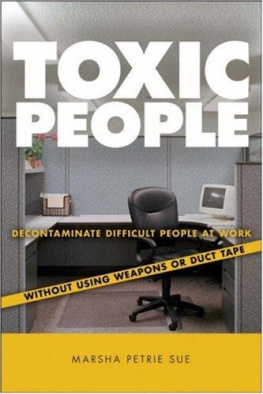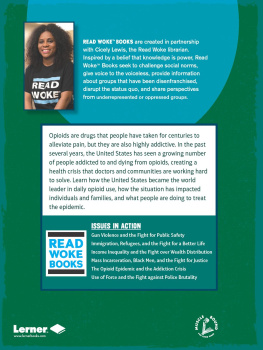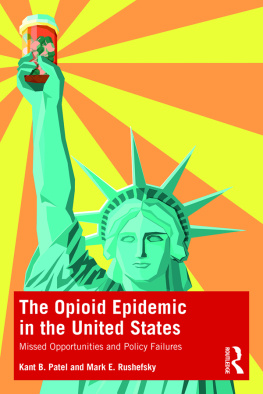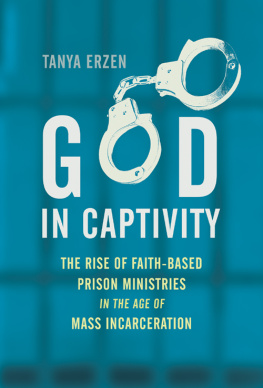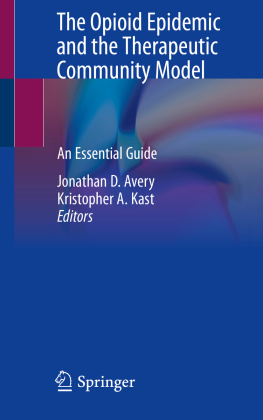Getting Wrecked
The publisher and the University of California Press
Foundation gratefully acknowledge the generous support of the Barbara S. Isgur Endowment Fund in Public Affairs.
The California Series in Public Anthropology emphasizes the anthropologists role as an engaged intellectual. It continues anthropologys commitment to being an ethnographic witness, to describing, in human terms, how life is lived beyond the borders of many readers experiences. But it also adds a commitment, through ethnography, to reframing the terms of public debatetransforming received, accepted understandings of social issues with new insights, new framings.
Series Editor: Robert Borofsky (Hawaii Pacific University)
Contributing Editors: Philippe Bourgois (UCLA), Paul Farmer (Partners In Health), Alex Hinton (Rutgers University), Carolyn Nordstrom (University of Notre Dame), and Nancy Scheper-Hughes (UC Berkeley)
University of California Press Editor: Naomi Schneider
Getting Wrecked
Women, Incarceration, and the American Opioid Crisis
Kimberly Sue

UNIVERSITY OF CALIFORNIA PRESS
University of California Press, one of the most distinguished university presses in the United States, enriches lives around the world by advancing scholarship in the humanities, social sciences, and natural sciences. Its activities are supported by the UC Press Foundation and by philanthropic contributions from individuals and institutions. For more information, visit www.ucpress.edu.
University of California Press
Oakland, California
2019 by Kimberly Sue
Library of Congress Cataloging-in-Publication Data
Names: Sue, Kimberly, author.
Title: Getting wrecked : women, incarceration, and the American opioid crisis / Kimberly Sue.
Description: Oakland, California : University of California Press, [2019] | Series: California Series in Public Anthropology | Includes bibliographical references and index. |
Identifiers: LCCN 2019009256 (print) | LCCN 2019016406 (ebook) | ISBN 9780520966406 (e-book) | ISBN 9780520293205 (cloth : alk. paper) | ISBN 9780520293212 (pbk : alk. paper)
Subjects: LCSH : Women prisonersSocial aspectsMassachusetts. | Opioid abuseTreatmentMassachusetts.
Classification: LCC HV 8738 (ebook) | LCC HV 8738 . S 835 2019 (print) | DDC 365/.6672908209744dc23
LC record available at https://lccn.loc.gov/2019009256
Manufactured in the United States of America
27 26 25 24 23 22 21 20 19
10 9 8 7 6 5 4 3 2 1
To Margie and Sam
Contents
Illustrations
Acknowledgments
Conducting fieldwork on addiction in prisons and jails certainly tested my mettle and dedication to the subject. Given the substantial institutional, bureaucratic, and systemic challenges that I have faced over the years, I realize that the contributions of many individuals other than myself have helped make the completion of this work possible. But it would not be possible without the women themselves, who have generously opened their lives and hearts to me. Incarceration, trauma, and drug use are sensitive topics to share with anyone, but I found a true generosity of spirit and commitment to the goals of this work among women who have used and continue to use heroin and other drugs. They gave me the encouragement to finish this work as I witnessed the truly difficult circumstances that they must navigate skillfully every day. I particularly want to thank the woman I call Tina for being such a kind and compassionate informant and friend. She took it upon herself to teach me about the complexity of addiction and incarceration in her life. Her ongoing work and commitment to serve others in similar situations is truly inspiring and gives me great hope.
From its inception, I knew that working in prisons and jails in the United States would be difficult, given the high level of concern surrounding prison research. Many people experienced with the prisons and jails in Massachusetts helped me with the necessary and critical logistics, including Dr. Warren Ferguson, Dr. Stephen Martin, Dr. Joseph Cohen, Jennifer Johnson, and Rheana Kohl at the Department of Correction Research office. I also am indebted to Dr. Ken Freedman, Donna White, and the staff of the buprenorphine clinic including Ron and Jane. Thanks to Chris Jepson and Donna Clarke, who encouraged me to dream big about how to best take care of women on heroin and to make this project accessible to people working on the ground, one that speaks to real-life clinical quandaries and is grounded in patient experiences. I also wish to thank prison and jail administrators who made space and time for me at the prison and jail at the Suffolk County House of Correction as well as at the South Middlesex Correctional Center and MCI-Framingham. I thank the numerous caseworkers and program directors who allowed me to sit in on their programs.
At Harvard, Arthur Kleinman has challenged me at all levels to make this work both critical and accessible, encouraging me to believe that this project matters to many. Byron and Mary-Jo Good have been generous and inspiring mentors and friends, drawing on their vast and substantial fieldwork both in and outside of the United States. And Philippe Bourgois opened his field site and home to me, offering me many ways to think insightfully and critically at a grounded level about drugs and incarceration. Doing fieldwork and learning from the ethnographic team with Laurie Hart, Fernando Montero Castrillo, and George Karandinos was a great joy and is a continual reminder that this work can be fun, stimulating, and exciting. I have also benefited particularly from years of conversations and support from Allan Brandt, who is the true epitome of a thorough and kind scholar. From the moment I received a welcome email from him into the MD-PhD program in the social sciences at Harvard, he has been a great friend and champion of my work. He and I have had many important and inspiring conversations about studying and writing about addiction. I am beyond thankful for the stalwart mentorship of Paul Farmer, Salmaan Keshavjee, Anne Becker, David Jones, and Lesley Sharp, all of whom have been ardent supporters for many years; it has been my pleasure to learn and teach from them. I hope my work contributes to the body of global health knowledge and ideas that you all have pioneered. To Angela Garcia, Helena Hansen, Laurence Ralph, Laurie Hart, Jeremy Greene, Joao Biehl, Adriana Petryna, Jean Jackson, Susan Greenhalgh and Erica James, I thank you all for conversations and encouragement.
Graduate school is also a process of learning how to support oneself and ones colleagues, and my graduate school classmates have offered support quickly and often when I have been dispirited, discouraged, or stuck at a dead end. Marty Alexander has read and edited countless talks and papers, and we have had innumerable Skype conversations, the content of which is embedded in this entire book. Amy Porter has been my steady friend and companion in the MD-PhD process, along with my other excellent colleagues in this program, including John Heintz, George Karandinos, Sae Takada, Darja Djordjevic, Alison Hwong, David Kim, Zirui Song, Aaron Schwartz, and Tisa Sherry. Emily Harrison and Erica Dwyer have been my on-site historians and have walked with me alongside the research and writing. And I have benefited from the mentorship and friendship of so many in the program, including Felicity Aulino, Kate Mason, Seth Hannah, April Opoliner, Saed Atshan, Andy McDowell, Maria Stalford, Janis Calleja and Marilyn Goodrich. I am inspired by joint-degree colleagues whose work shows both attention to academic scholarship and clinical medicine and who have gone along this path before: including Scott Stonington, Seth Holmes, and Carolyn Sufrin.
Next page
